Revolutionizing Data Analysis for Greater Impact

Artificial Intelligence (AI) is transforming how NGOs handle data. AI technologies make data analysis faster and more accurate. This advancement allows NGOs to enhance their impact and efficiency.
Here’s how AI is revolutionizing data analysis:
- Streamlined Data Processing: AI algorithms can process vast amounts of data quickly. This speeds up analysis and helps NGOs make informed decisions faster.
- Enhanced Accuracy: AI reduces human error in data interpretation. Accurate data leads to better insights and more effective strategies.
- Predictive Analytics: AI can forecast trends and needs. Predictive analytics helps NGOs anticipate challenges and allocate resources more effectively.
Additionally, AI improves donor engagement. By analyzing donor data, AI can personalize communication and tailor fundraising efforts. This targeted approach increases donor satisfaction and support.
Moreover, AI enables better impact measurement. Automated tools track and report on program outcomes in real time. This transparency showcases the results of NGO efforts and builds trust with stakeholders.
Also, AI supports more efficient resource management. It optimizes logistics, forecasts needs, and minimizes waste. This efficiency helps NGOs use their resources more effectively and reach more beneficiaries.
In summary, AI is revolutionizing data analysis for NGOs by streamlining processing, enhancing accuracy, and providing predictive insights. These advancements lead to better decision-making, improved donor engagement, and more efficient resource management. Embracing AI helps NGOs maximize their impact and achieve their missions more effectively.
AI-Driven Strategies for Efficient Resource Allocation

Artificial Intelligence (AI) is revolutionizing how NGOs operate. By streamlining tasks, AI boosts efficiency and impact.
Firstly, AI enhances data management. It quickly analyzes large amounts of data, revealing trends and patterns. This helps NGOs make informed decisions.
Secondly, AI optimizes resource allocation. Algorithms predict where resources are needed most, reducing waste and improving effectiveness. For example:
- Predictive Analytics: AI forecasts needs based on historical data.
- Resource Matching: AI links available resources to areas of high demand.
- Impact Measurement: AI tracks project outcomes, helping NGOs adjust strategies.
Furthermore, AI supports fundraising efforts. It identifies potential donors and personalizes outreach strategies. This targeted approach increases engagement and donations.
Additionally, AI aids in volunteer management. It matches volunteers with projects that fit their skills and interests. This alignment enhances volunteer satisfaction and project success.
In summary, AI transforms NGO operations. It makes resource allocation smarter, fundraising more effective, and volunteer management smoother. Embracing AI allows NGOs to focus on their mission and make a bigger difference.
Explore how AI can elevate your NGO’s impact. With the right tools and strategies, you’ll see meaningful improvements in efficiency and outreach.
Enhancing Program Effectiveness with Predictive Analytics

Artificial Intelligence (AI) is transforming NGO programs with predictive analytics. This technology makes planning and decision-making more precise and effective.
Firstly, predictive analytics uses data to forecast future needs. It helps NGOs anticipate where help will be needed most. This foresight ensures resources are deployed efficiently.
Next, AI analyzes past program data to identify trends. By understanding these patterns, NGOs can tailor their strategies to meet specific needs. For example:
- Resource Forecasting: Predictive models anticipate future resource requirements.
- Trend Analysis: AI identifies patterns to improve program planning.
- Outcome Prediction: AI estimates the potential impact of various interventions.
Furthermore, predictive analytics supports targeted interventions. NGOs can focus efforts on high-impact areas, making their programs more effective. For instance, knowing when and where a disaster might strike allows for timely aid distribution.
Additionally, AI helps measure program success. It provides insights into which strategies work and which need adjustments. This feedback loop enhances program outcomes and efficiency.
In conclusion, predictive analytics boosts program effectiveness by using data to forecast needs, identify trends, and target interventions. Embracing this technology helps NGOs operate more efficiently and achieve greater impact.
Explore how predictive analytics can refine your NGO’s programs. With data-driven insights, you can enhance your mission and create lasting change.
Automating Routine Tasks to Focus on Core Missions

Artificial Intelligence (AI) is reshaping how NGOs operate by automating routine tasks. This shift frees up time for teams to concentrate on their core missions.
Firstly, AI handles repetitive administrative tasks. This includes processing donations, managing data, and scheduling events. Automation saves valuable time and reduces human error.
Additionally, AI streamlines communication. Chatbots can answer common inquiries and provide information 24/7. This ensures that supporters and beneficiaries get timely responses.
Here are a few ways AI automation benefits NGOs:
- Donation Processing: AI automates transactions and acknowledgments, speeding up the process.
- Data Management: AI organizes and updates records efficiently.
- Event Scheduling: AI handles logistics and reminders, easing administrative burdens.
Moreover, AI improves reporting accuracy. It generates detailed reports quickly, helping NGOs track progress and make data-driven decisions.
Furthermore, automating routine tasks allows staff to focus on strategic initiatives. This shift enhances overall productivity and strengthens the organization’s mission.
In conclusion, AI-powered automation transforms NGO operations. It takes over routine tasks, allowing teams to dedicate their energy to impactful work. Embracing this technology leads to more efficient operations and a greater focus on achieving goals.
Explore how AI can streamline your NGO’s daily tasks. With less time spent on administration, your team can focus on making a real difference.
Leveraging AI for Better Donor Engagement and Retention

Artificial Intelligence (AI) is transforming how NGOs connect with donors. By using AI, organizations can enhance engagement and improve donor retention.
Firstly, AI helps personalize communication. It analyzes donor data to craft messages tailored to individual interests and giving history. This personal touch builds stronger connections.
Additionally, AI can predict donor behavior. By examining past donations, AI forecasts when and how donors might give next. This insight allows for timely, targeted outreach.
Here are some key ways AI boosts donor engagement:
- Personalized Campaigns: AI customizes messages and recommendations based on donor preferences.
- Predictive Analytics: AI identifies potential high-value donors and suggests engagement strategies.
- Automated Follow-Ups: AI schedules and sends follow-up emails, ensuring donors stay informed and appreciated.
Moreover, AI enhances donor experiences with chatbots. These bots provide instant responses to queries and support, available around the clock. This continuous interaction keeps donors engaged and satisfied.
Furthermore, AI tracks engagement metrics, offering insights into what works and what doesn’t. This data helps NGOs refine their strategies for better results.
In summary, AI revolutionizes donor engagement by personalizing interactions, predicting behaviors, and providing timely support. By leveraging these technologies, NGOs can build lasting relationships and boost donor retention.
Explore how AI can enhance your donor engagement efforts. With AI’s support, your organization can create meaningful connections and strengthen its impact.
Improving Crisis Response with AI-Powered Solutions

Artificial Intelligence (AI) is revolutionizing crisis response for NGOs. With AI, organizations can act quickly and effectively during emergencies.
Firstly, AI helps analyze vast amounts of data. It processes real-time information to identify patterns and predict emerging crises. This enables NGOs to respond proactively.
Additionally, AI improves communication during crises. Chatbots and automated systems manage inquiries and provide updates. This ensures people receive timely and accurate information.
Here’s how AI enhances crisis response:
- Data Analysis: AI quickly processes data to spot trends and forecast needs.
- Resource Allocation: AI directs resources to the most critical areas based on real-time data.
- Impact Assessment: AI evaluates the effectiveness of responses and suggests improvements.
Moreover, AI supports coordination among teams. It integrates data from various sources, helping NGOs work together seamlessly. This coordination is crucial in high-pressure situations.
Furthermore, AI assists in logistics. It optimizes supply chain management, ensuring that aid reaches those in need without delay.
In summary, AI transforms crisis response by providing real-time data analysis, improving communication, and optimizing resources. These capabilities help NGOs react faster and more effectively in emergencies.
Explore how AI can enhance your organization’s crisis response. With AI’s support, your NGO can provide timely aid and make a greater impact during critical times.
AI in Monitoring and Evaluation: A New Era of Accountability

Artificial Intelligence (AI) is ushering in a new era for monitoring and evaluation (M&E) in NGOs. With AI, accountability and transparency are significantly improved.
Firstly, AI simplifies data collection. It automates the gathering of information from various sources, ensuring accuracy and consistency. This helps NGOs track their progress more reliably.
Additionally, AI enhances data analysis. It processes complex data sets quickly, providing clear insights into project outcomes. This enables NGOs to evaluate their impact effectively.
Here’s how AI improves M&E:
- Real-Time Reporting: AI generates up-to-date reports, allowing for timely assessments.
- Predictive Analytics: AI forecasts future trends and outcomes based on current data.
- Impact Measurement: AI measures the effectiveness of programs, highlighting successes and areas for improvement.
Moreover, AI helps in identifying patterns. By analyzing data trends, AI can uncover hidden issues and provide actionable recommendations. This leads to more informed decision-making.
Furthermore, AI increases transparency. Automated systems and AI tools provide detailed records of activities and outcomes, enhancing accountability. Stakeholders can access this information easily.
In summary, AI transforms monitoring and evaluation by automating data collection, enhancing analysis, and increasing transparency. These advancements ensure that NGOs operate with greater accountability and effectiveness.
Explore how AI can elevate your NGO’s M&E practices. With AI-driven insights, you can enhance your impact and build trust with stakeholders.
Navigating Ethical AI Use in Nonprofit Organizations

Artificial Intelligence (AI) offers great opportunities for NGOs, but it also raises ethical concerns. Navigating these issues is crucial for responsible use.
Firstly, transparency is key. NGOs should clearly explain how AI is used and how data is collected. This builds trust and ensures ethical practices.
Secondly, data privacy must be a priority. AI systems often handle sensitive information. Implementing strong data protection measures prevents misuse and ensures confidentiality.
Here are some essential ethical practices for AI use:
- Informed Consent: Ensure that data subjects understand how their information will be used.
- Bias Mitigation: Regularly check AI systems for biases and take steps to address them.
- Accountability: Establish clear guidelines for who is responsible for AI decisions and actions.
Additionally, NGOs must consider the potential impact of AI decisions. Automated systems should be regularly reviewed to ensure they align with the organization’s values and mission.
Moreover, ethical AI use involves stakeholder engagement. NGOs should involve communities and beneficiaries in discussions about AI applications and gather their feedback.
Explore how your NGO can navigate ethical AI use. With thoughtful implementation, AI can enhance your operations and support your mission responsibly.
